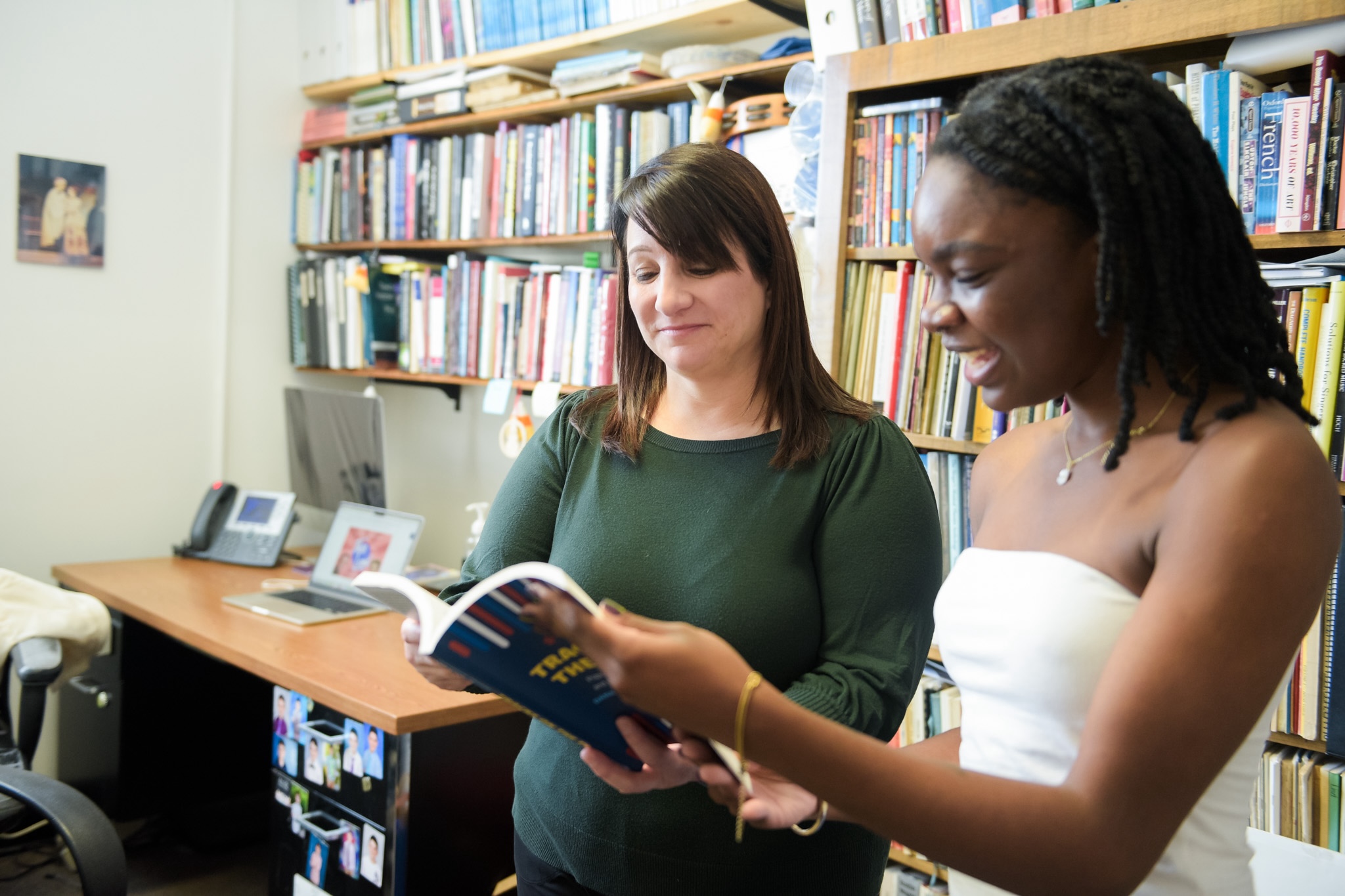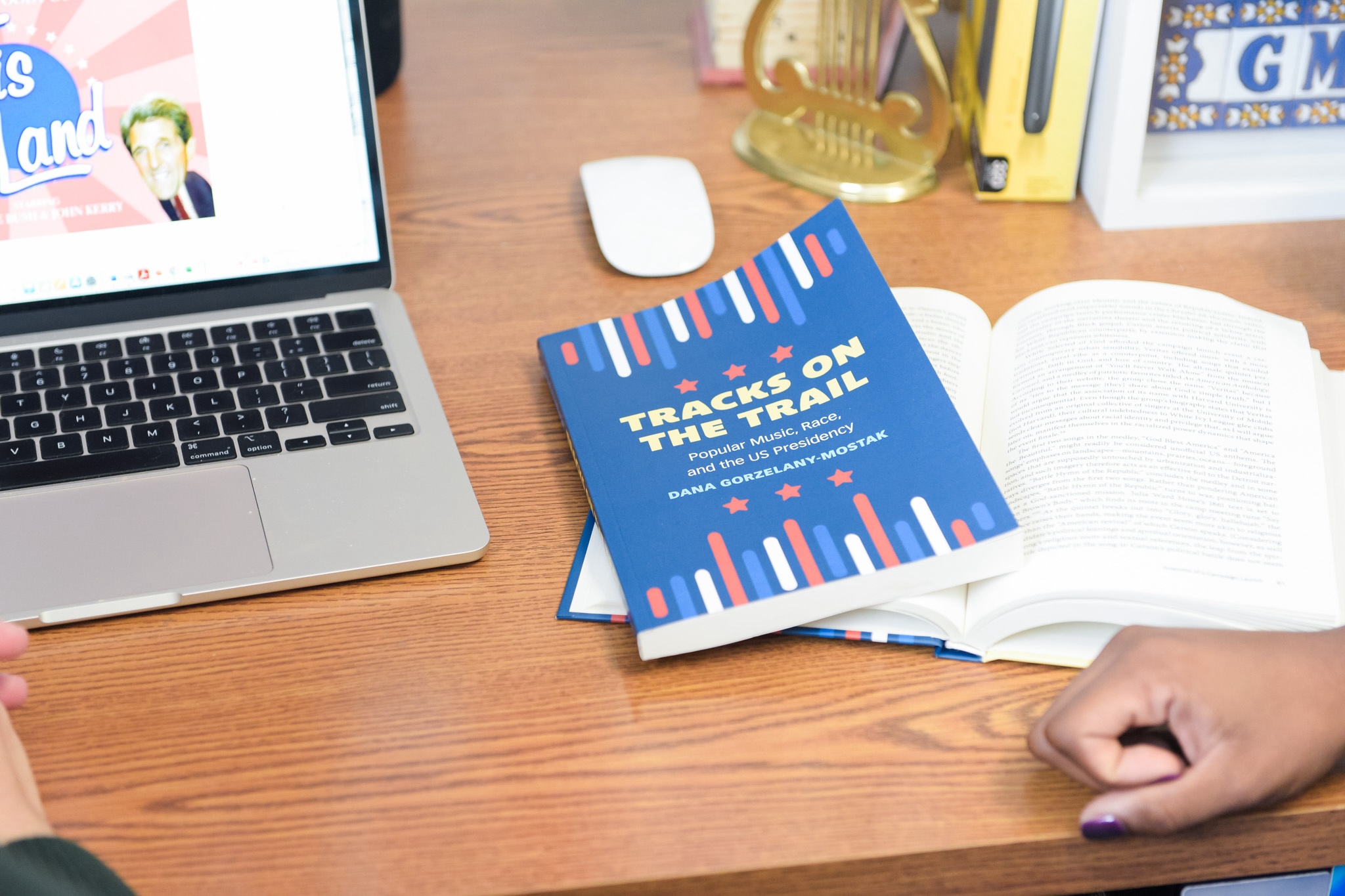From ‘brat’ to Beyoncé: How music is shaping the 2024 U.S. Presidential election
By Cindy O'Donnell
P olitical divisiveness has Americans singing different tunes.
But whether you’re tapping to Beyoncé’s “Freedom”— a liberation song used recently by U.S. Presidential candidate Kamala Harris — or swaying to Lee Greenwood’s “God Bless the U.S.A.” — often used by former President Donald Trump — one thing’s for sure.
Music makes politics more fun.
“Voters are swayed by emotions,” said Dr. Dana Gorzelany-Mostak, associate professor of music at Georgia College & State University. “So it only makes sense that candidates are going to gravitate toward a medium of communication that’s all about feeling. I think we’ve certainly seen a lot of that in this campaign season.”
 In 2015, Gorzelany-Mostak founded Trax on the Trail, an online database that examines how music is used for political strategy. This is the third presidential election Gorzelany-Mostak and her students have tracked. The website has a catalog of nearly 13,000 campaign songs.
In 2015, Gorzelany-Mostak founded Trax on the Trail, an online database that examines how music is used for political strategy. This is the third presidential election Gorzelany-Mostak and her students have tracked. The website has a catalog of nearly 13,000 campaign songs.
The site has become an educational tool in classrooms and is used by journalists nationwide. In recent months, Gorzelany-Mostak was interviewed by the Washington Post, Chicago Tribune, Vox and Politico.
In this election, music continues to play a key role — whether it's Taylor Swift’s alignment with the Democratic party or singer Kid Rock performing “American Bad Ass” at the Republican National Convention.
Trump uses classic rock from groups like the Rolling Stones and Queen. At rallies, he plays “YMCA” by the Village People in addition to songs with titles that align with his message. These include Elvis Presley’s “Suspicious Minds,” Elton John’s “I’m Still Standing,” Tom Petty’s “I Won’t Back Down,” Bachman-Turner Overdrive’s “You Ain’t Seen Nothing Yet” and Frank Sinatra’s “My Way.”
Harris’ choice of music is “a bit more eclectic,” Gorzelany-Mostak said. The vice president uses a broad range of genre from R&B and pop to Latin and hip-hop.
Harris likes Aretha Franklin’s “Think,” Beyoncé’s “Run the World,” Rihanna’s “Don’t Stop the Music,” Stevie Wonder’s “Higher Ground,” Megan Thee Stallion’s “Savage” and Andra Day’s “Rise Up.” Popular artists like Lizzo and Taylor Swift have both endorsed Harris.
Senior psychology major Victoriyah Friend of Hinesville, Georgia, is one of the Georgia College students who have worked with Gorzelany-Mostak over the years.

She enters data on the Trax website, classifying songs used in ads and rallies, notes artists and geographically maps where each song was played.
“It's really opened my eyes to something I came into college thinking I would never want to do — research — and now it's something that I truly love,” Friend said.
“The opportunities and experiences I've had with the Trax on the Trail team have been really impactful," she added. "I gained a lot of knowledge I can use in my future.”
Friend especially appreciates the psychological role music plays in elections. It can strengthen a faltering image, motivate fans, energize voters and manipulate emotions.
Music can keep things from getting too serious. This parody by Remy pokes fun at both parties, using Ed Sheeran and Justin Bieber's song, "I Don't Care."
It can even turn gaffes into gold.
On TikTok, English singer songwriter Charli XCX earmarked Harris as “brat,” a term that became a positive moniker last summer with her song, “360.” It wasn’t an outright endorsement. Yet, referring to Harris as brat, the artist showed the candidate’s word blunders as “maybe a little bit messy, a little bit klutzy but cool,” Gorzelany-Mostak said.
A particular song can be liked by all sides too.
Eminem’s rap “Lose Yourself” from 2002 has been used by three candidates from both political parties. The streetwise anthem, a song of individual struggle, meant something different for each.
Ben Carson kicked off his 2015 presidential run with a gospel version of Eminem’s rap, turning it into a struggle song for all people. President Joe Biden used the song to show strength in mask-wearing during the COVID-19 pandemic.
To appeal to his base of older voters, Republican Vivek Ramaswamy rapped “Lose Yourself” during the 2023 primaries and got in trouble by the artist for doing so.
Just a few days ago, former President Barack Obama rapped part of Eminem’s song at a Harris/Walz campaign rally in Detroit.
So it seems music is something we can all get behind.
“My bigger goal for Trax on the Trail is encouraging people to think critically, ask questions and pay attention to the ways sound is used to persuade,” Gorzelany-Mostak said. “Think about how we live our lives in the 21st century. We go from screen to screen to screen. We’re constantly bombarded with images and sounds.”
“I don't think we can quantify which of those sounds persuades people to vote,” she said. “The more interesting question to me is ‘How does music allow people to communicate and feel connected to political candidates?'”

Learn more about the Innovate Pillar in our Imagine 2030 Strategic Plan
